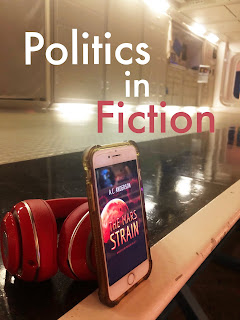So much so that I missed posting for the last two weeks - and I'm posting late in the day today. Madness!
This is my brilliant (one hopes) catch-up post.
In book news, I got the rights reverted on the ten (10!) books I did for Carina Press. I started with my first dark fantasy romance trilogy, Covenant of Thorns, which meant new covers and new back cover copy (BCC). Done and done, times three. (What about the other seven books, you ask? I'M WORKING ON IT, OKAY?) I'll be re-releasing these three books over the next several months.
Here's for Book #1, ROGUE'S PAWN:
Be careful what you wish for…
When I walked out on my awful boyfriend, wishing to be somewhere—anywhere—else, I never expected to wake up in Faerie. And, as a scientist, I find it even harder to believe that I now seem to be a sorceress.
A pretty crappy sorceress, it turns out, because every thought that crosses my mind becomes suddenly and frighteningly real—including the black dog that has long haunted my nightmares.
Now I’m a captive, a pawn for the fae lord, Rogue, and the feral and treacherous Faerie court, all vying to control me and the vast powers I don’t understand. Worse, Rogue, the closest thing I have to a friend in this place, is intent on seducing me. He’s the most beautiful man I’ve ever seen, enthralling, tempting, and lethally dangerous. He’s as devastatingly clever as he is alluring, and he tricks me into promising him my firstborn child, which he intends to sire…
I don’t dare give into him. I may not have the willpower to resist him. He’s my only protection against those who would destroy me
Unless I can learn to use my magic.
Exciting milestone, to be re-releasing these!
As for the actual topics I'm supposed to address:
What do you see in your crystal ball for publishing? Will the Big 5 become the Big 4 and what would that trickle down cause throughout the industry?Dear Hollywood: Which of your works would you most like to see made into a movie or miniseries What makes it stand out above the rest?
Your gateway drug: the book that made you love SFF




























